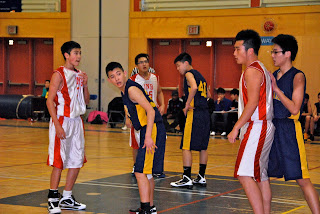I responded to him with, "That is a great question. I think the best tests will ask us to apply a concept to solve a problem." Careful to cover myself and any teachers he had in his timetable, I added, "However, there may be some examples of tests where you need to be able to recall information, especially those having to deal with safety." I then asked him, "Why do you ask?" His reply was that he was worried about an upcoming exam where he felt he might have to remember things that he could not retain. I told him he should prepare for the test, and if he felt he was not able to accurately represent his knowledge, he should talk to his teacher about giving him another opportunity to show his understanding, perhaps in a different way. He thanked me for the time, and agreed that he would do so. I saw him a few days later, and asked how the test went. He said it was fine, and that the test was fair and he was able to demonstrate what he had learned accurately (he did quite well, and indicated the test was not simply recall of facts). I thanked him for asking me the question, and reminded him that anytime he felt an assessment did not accurately reflect his understanding of a concept, he needed to ask his teacher for another, perhaps different, opportunity to show them what he knows.
My answer may have been a little superficial (perhaps some of you can share with me how you would have responded to such a query), but I was pleased that he felt he could ask me. I was also pleased that he was willing to express his concern to his teacher if he had one, and am encouraged that the majority of teachers in our school are willing to give students different opportunities to show them what they know. More than anything, I walked away from the interaction engaged in some thinking about what we do, how it impacts students, and how they feel about it. It was a great question, and one that I have repeated to several staff at the school since. I will continue to think and talk about it with others in education.
Thanks for the reminder of what we are here to do, Travis. Teachers are supposed to help you develop your critical thinking skills, and your question reminds me of that purpose. Tests should not be about regurgitation of isolated facts, and I love that you understand this. I will be sure to ask your question of our staff as we work through the District Assessment Policy and Guidelines.









